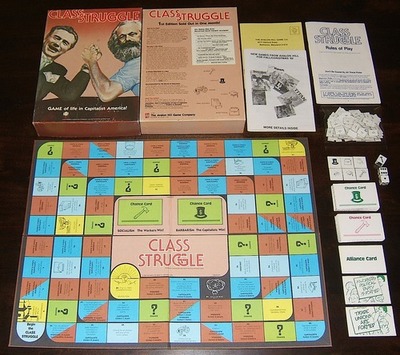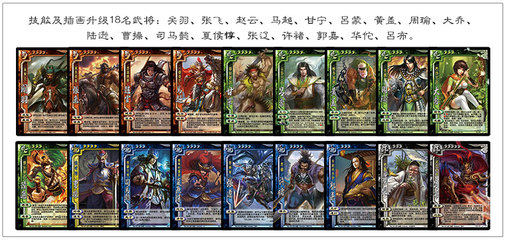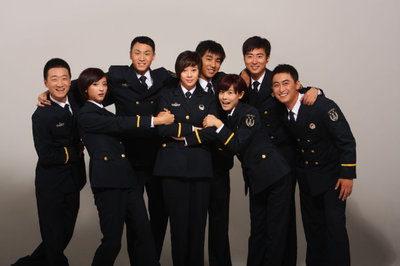©1978, Bertell Ollman
BEGINNERS RULES
OBJECT OF THE GAME
"Class Struggle" reflects the real struggle between the classes inour society. THE OBJECT OF THE GAME IS TO WIN THE REVOLUTION . . .ULTIMATELY. Until then, classes—represented by differentplayers—advance around the board, making and breaking alliances,and picking up strengths and weaknesses that determine the outcomeof the elections and general strikes which occur along theway.

- PLAYERS
- "Class Struggle" can be played by two to six players.
- THE REAL PLAYERS IN "CLASS STRUGGLE," HOWEVER, ARE CLASSES, notindividuals. Workers (those who produce shoes, cars, houses and soon) and Capitalists (those who own the machines and factories withwhich these things are produced) are the Major Classes. Farmers,Small Businessmen, Professionals (doctors, lawyers, professors,etc.) and Students are the Minor or Allied Classes. In the game,the hammer symbolizes the Workers, the top hat—the Capitalists, thetractor—the Farmers, the cash register—the Small Businessmen, thebrief case—the Professionals, and the mortarboard—theStudents.
- ONLY THE WORKERS AND THE CAPITALISTS CAN WIN OR LOSE IN "CLASSSTRUGGLE". The Minor Classes can only participate in winning orlosing through their alliances with one of the Major Classes (seeRule 12).
DICE - Individual players cannot choose their class. In real life,this is usually determined by the kind of family into which one isborn. In "Class Struggle" too it is chance that decides. THROW THEGENETIC (OR LUCK-OF-BIRTH) DIE, THE ONE WITH THE SYMBOLS ON IT, TOSEE WHO PLAYS WHAT CLASS. It is important that Workers andCapitalists be represented in the game, so if there are only twoplayers these are the classes they should play.
- Again, to be true to real life, where the Capitalists' wealthand power over people and factories give them many unfairadvantages, THE CAPITALIST CLASS IS THE FIRST TO THROW THE NUMBEREDDICE. They also decide whether the order in which the other classestake their turn at the dice proceeds from their left or theirright.
- Classes now throw the numbered dice and move forward as manysquares as the number shown. IF A CLASS THROWS A DOUBLE NUMBER, ITGETS AN EXTRA TURN AT THE DICE, and this rule holds for as long asany class throws double numbers.
ASSETS AND DEBITS - Capitalists get points (plus points are called "ASSETS" andminus points are called "DEBITS") only if they land on Capitalist(blue) Squares, which list the strengths and weaknesses of theCapitalist Class in the real Class Struggle. Workers pick up pointsonly if they land on Worker (red) Squares, which list the actualstrengths and weaknesses of the Working Class in this samestruggle. As part of their unfair advantages, the Capitalistsdecide which of the other classes should do the hard but necessarywork of handing out assets and debits, that is of taking care ofthe "BANK".
- The MINOR CLASSES PICK UP ASSETS AND DEBITS whenever they landon either Capitalist or Worker Squares until they enter an alliancewith one of the Major Classes, after which they get points onlyfrom squares that carry the name of their ally. (See Rule12).
CHANCE - When landing on a Chance Square, Capitalists pick up a CHANCECARD from the pack marked "Capitalist", and Workers from the packmarked "Worker".
- Until they enter into an alliance with one of the MajorClasses, the Minor Classes can take their Chance Cards from eitherpack. After an alliance, they must pick their cards from the samepack as their Major Class ally. (See Rule 12).
- TRADE UNION AND WORKERS' POLITICAL PARTY CARDS: if the Workersor their allies land on squares 11 or 52, they receive a TradeUnion Card; landing on squares 16 or 56 earns them a PoliticalParty Card. Minor classes can acquire these cards only while theyare allied with the Workers, and must return them should thisalliance be broken. (Rule 12)
ALLIANCES - Squares which read "Chance for an Alliance with the Farmers"(or Small Businessmen, or Professionals, or Students) permit theMajor Class which lands there to enter into an alliance with theMinor Class named there. Each Minor Class has a CLASS ALLIANCE CARDwhich it gives to its new ally to seal the alliance. Like theplayer pieces, Alliance Cards can be mounted on the blocks of woodwhich are provided. Though EACH ALLIED CLASS RETAINS ITS OWN ASSETSAND DEBITS, their points are counted together in any future"Confrontation" (See Rule 19).
- WHEN THERE ARE LESS THAN SIX PLAYERS IN THE GAME, a Major Classwhich lands on the Alliance Square of a Minor Class that is notrepresented by a player still receives the latter's Alliance Cardand a bonus of five assets.
- MINOR AS WELL AS MAJOR CLASSES HAVE A CHANCE TO ENTER INTOALLIANCES if they land on an Alliance Square. If a Minor Class (sayFarmers), which is already allied to a Major Class (sayCapitalists), lands on a square that makes possible an alliancewith the Students, the latter automatically becomes an ally of theCapitalists as well. In this way, the Minor Class allies of eachmajor class can pick up alliances for their Major Class ally.
- IF A MINOR CLASS IS NOT ALLIED TO EITHER OF THE MAJOR CLASSES,IT CAN STILL ENTER INTO AN ALLIANCE WITH ANOTHER MINOR CLASS. Inthis case, the two Minor Classes have made themselves doublyvaluable for the first Major Class to enter into an alliance witheither of them; for—given the alliance of the two Minor Classes—toally with either one of them is to ally with both.
- After two Minor Classes enter into an alliance with a MajorClass, their special relationship comes to an end. Thus, if theother Major Class forces either of these Minor Classes to changealliances, its one-time partner is unaffected.
- CHANGE OF ALLIANCES: if an alliance between a Major and a MinorClass already exists, the other Major Class can force a change ofalliance if it or any of its allies land on the appropriateAlliance Square. For example, if an alliance between Capitalistsand Farmers already exists, and the Workers (or any of its allies)lands on the square which says, "Chance for an Alliance with theFarmers", they can ask the Farmers to break their alliance with theCapitalists and ally with them. If the Farmers think they stand abetter chance of winning allied to the Workers, they will agree. Ifnot, and the Workers insist on forming an alliance with them, theFarmers and the Workers throw the dice and the class throwing thehigher number has its way. In case of a tie, they throw the diceagain.
- If there are less than six players in the game, forcing achange of alliances with a Minor Class that is not represented by aplayer is simply a matter of transferring the Alliance Card and thefive assets which came with it from the old Major Class ally to thenew one.
CONFRONTATIONS - There are six Confrontation Squares—Life in the factory, twoElections, two General Strikes (when all the workers lay down theirtools) and the Revolution. If either Major Class or its allieslands on a Confrontation Square, it has a choice whether or not tocall a Confrontation. Non-allied Minor classes cannot call aConfrontation, and only the Major Classes (not even their allies)can call the final Confrontation, which is the Revolution. In aConfrontation, each side adds up its assets and debits (allies arecounted together), and the side with the highest number of assetsafter debits are subtracted wins. IN THE CASE OF THE ELECTIONS ANDGENERAL STRIKES, WINNING THE CONFRONTATION SECURES THE VICTORIOUSMAJOR CLASS THREE FREE THROWS OF THE DICE, improving in this wayits position in the overall Class Struggle. Rule 6 regarding doublenumbers does not apply to these three throws. IN THE CASE OFREVOLUTION, WINNING THE CONFRONTATION IS WINNING THE GAME. To keepopponents guessing as to whether they can win a Confrontation, eachclass should keep its own assets and debits securely covered.
- TO LAND ON THE REVOLUTION SQUARE, A CLASS HAS TO GET AN EXACTNUMBER ON THE DICE. If it is two squares away, it has to keepthrowing the dice until it gets a two. If it is only one squareaway, it throws only one die.
- IN REVOLUTION, THE POINTS OF ONE'S ALLIES ONLY COUNT IF THEYHAVE ARRIVED IN THE REVOLUTION SQUARE. A Major Class which needsthese points to win should not call this Confrontation until itsallies have joined it in the final square. Until then, any class(Major or Minor) which has arrived in the Revolution Square can useits turn at the dice to help move its allies forward on the board,indicating before each throw the ally it intends to move.
- If the Capitalists land on square 81 this triggers off NUCLEARWAR and brings an automatic end to the game. If the Workers or anyof its allies land there first, the power of the Capitalists tostart such a war has been voided for the remainder of the game.(See Rule 34 of the FULL RULES and number 81 of the "WHY?" sectionof the accompanying booklet for the explanation).
- Having played "Class Struggle" a few times by these simplifiedrules, you are ready to play by the FULL RULES. Go ahead—tryit!
 爱华网
爱华网



